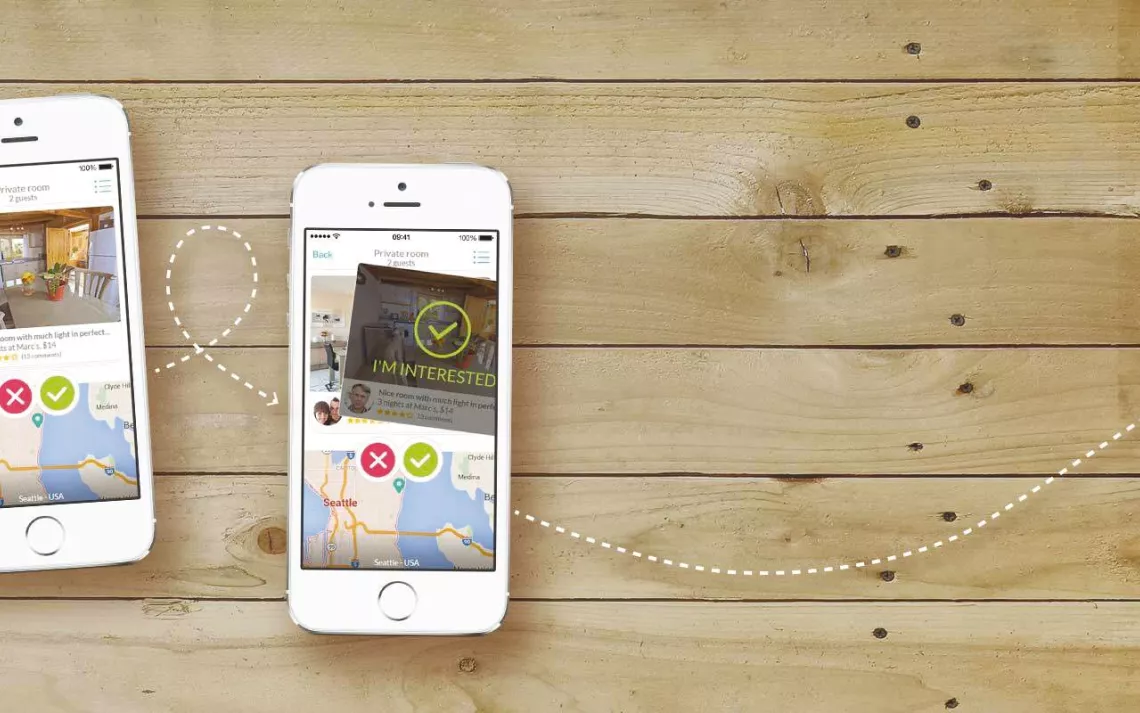NightSwapping is like Airbnb, Without the Cost

Photo courtesy of Nightswapping
Whether you love or hate Airbnb and the other “sharing economy” platforms that let you find places to sleep in exchange for a nightly fee, you’ve got to admit one thing: Doing business that way isn’t exactly “sharing.”
Enter NightSwapping, a start-up out of Lyon, France, which lets travelers stay for free in someone else’s home—as long as they let another traveler stay in theirs. Unlike typical home swaps, this pay-it-forward trade doesn’t need to happen at the same time.
The site, which launched in 2012, has a global community of 150,000 users who can sidestep the conventional hotel stay in favor of something smaller-scale, more personal, and, in many cases, more environmentally responsible. Instead of staying in a resource-sucking resort (hotels account for 1 percent of global carbon emissions), NightSwappers occupy a dwelling that would otherwise sit empty, meaning that no new structures have to be built or used to accommodate travelers.
NightSwapping’s founder, Serge Duriavig, a former soccer coach, claims that his company, which nabbed $2.6 million in investor funding, is taking things further than Internet stalwarts like Airbnb, Onefinestay, and VRBO. “The concept of NightSwapping is somewhere between Couchsurfing and Airbnb,” he says. “There’s never an exchange of money between vendors, which is central to our concept. Our members get a more authentic experience—our hosts are hosting because they really want to, not just because they want to earn money on the side.”
The site’s currency is “nights,” earned by inviting a traveler to use your house, apartment, or spare room from at least dusk to dawn. If you host for three nights, you can stay for three nights anywhere that’s listed on the platform, any time in the future. Those wanting to test the service without hosting, and those wanting to go on a trip that’s longer than the number of nights they’ve hosted, can buy nights for $7 to $49. (On top of that, all bookings incur a $9.90 fee, which covers insurance.) Most travelers who start out buying nights, though, end up becoming hosts themselves. “When people sign up,” Duriavig says, “they kind of fall in love with the concept.”
So if you’re willing to offer your charming bungalow, how do you know you’ll get something comparable in return? To ensure value equivalency, NightSwapping assigns each property a score: higher numbers for those with great reviews and locations, lower for those that are far-flung or less attractive. Scores fluctuate based on demand, too, so a cabin in Aspen will rank higher at the height of ski season than in midsummer.
The beauty of NightSwapping is that it manages to avoid the range of legal issues that companies like Airbnb are smacking into. That’s mainly because the people who use NightSwapping are more houseguests than paying customers. “Instead of having that client-buyer relationship,” Duriavig says, “it’s like having a friend stay over.”
 The Magazine of The Sierra Club
The Magazine of The Sierra Club







